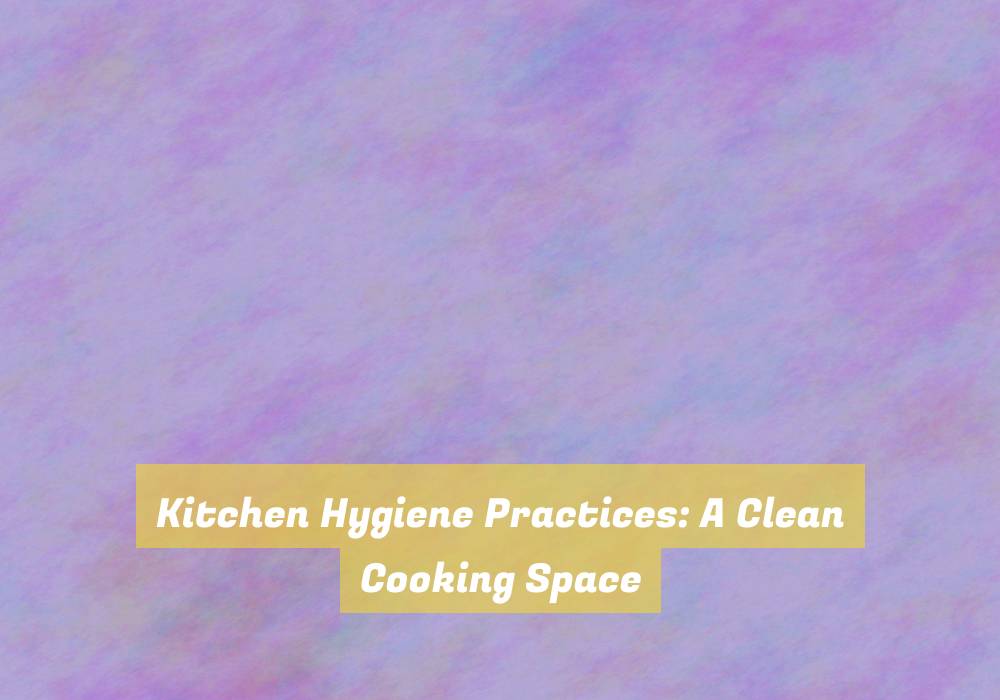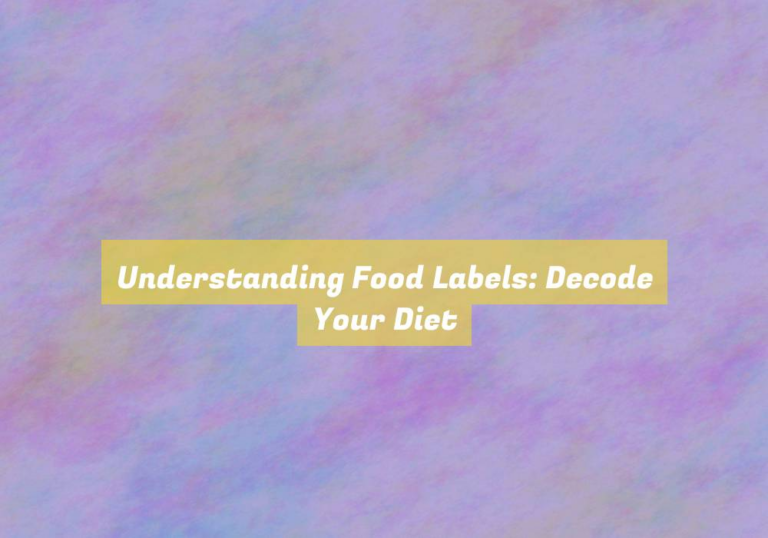Kitchen Hygiene Practices: A Clean Cooking Space
Are you confident that your kitchen is as clean as it could be?
Maintaining proper kitchen hygiene is crucial for not only your health but also for the quality of the meals you prepare.
From hand hygiene to ensuring a sanitized cooking space, there are several practices that can help you achieve a clean and safe cooking environment.
With the right knowledge and habits, you can ensure that your kitchen is a healthy and hygienic space for you and your loved ones.
Importance of Kitchen Hygiene
Maintaining proper kitchen hygiene is essential for preventing foodborne illnesses and ensuring the safety of the food you prepare and consume. By keeping your kitchen clean and hygienic, you significantly reduce the risk of contamination and the spread of harmful bacteria.
Regularly washing your hands before and after handling food, as well as cleaning and sanitizing kitchen surfaces and utensils, are simple yet crucial practices in maintaining a hygienic kitchen environment. Cross-contamination, which occurs when bacteria from one food item are transferred to another, can be avoided by using separate cutting boards for different types of food and ensuring that raw meats are stored separately from other items.
Proper kitchen hygiene also extends to the storage and handling of food. Refrigerating perishable items promptly and ensuring that food is cooked to the appropriate temperature can prevent the growth of bacteria that can cause foodborne illnesses. Additionally, maintaining cleanliness in your refrigerator and pantry helps to prevent the development of mold and bacteria on stored food items.
Hand Hygiene and Food Handling
To ensure food safety, itG??s crucial to practice proper hand hygiene and safe food handling techniques in the kitchen.
-
Wash your hands thoroughly with soap and warm water before and after handling food, especially after touching raw meat, poultry, seafood, or eggs. Use a clean towel to dry your hands or air-dry them.
-
When preparing food, avoid cross-contamination by using separate cutting boards for raw meat and ready-to-eat foods. Keep countertops and utensils clean by washing them with hot, soapy water after each use.
-
ItG??s important to cook foods to the appropriate internal temperature using a food thermometer to ensure theyG??re safe to eat.
-
Refrigerate perishable foods promptly and donG??t leave them out at room temperature for more than two hours.
-
When serving food, use clean utensils and never place cooked food on a plate that previously held raw meat, poultry, seafood, or eggs without washing it first.
Proper Cleaning and Sanitizing
After ensuring proper hand hygiene and safe food handling, the next crucial step is to maintain a clean and sanitized kitchen environment. Regular cleaning of kitchen surfaces, utensils, and equipment is essential to prevent the spread of harmful bacteria and viruses.
Use hot, soapy water to wash all utensils and surfaces that come into contact with food. Pay special attention to cutting boards, countertops, and any tools used to handle raw meat, as these can harbor dangerous pathogens if not cleaned thoroughly.
Sanitizing is equally important and involves using chemical agents to kill any remaining bacteria. You can create a simple sanitizing solution by mixing one tablespoon of unscented bleach with one gallon of water. After cleaning, apply the sanitizing solution to surfaces and allow it to air dry. Additionally, replace sponges and dishcloths regularly, as they can become breeding grounds for bacteria if not changed frequently.
Remember to also clean kitchen appliances such as microwaves, refrigerators, and ovens, both inside and out. Regular maintenance and cleaning of these appliances will help prevent the buildup of food residues and bacteria.
Maintaining a Hygienic Food Storage System
Regularly inspecting and organizing your food storage areas is essential for maintaining kitchen hygiene and preventing foodborne illnesses.
Start by regularly checking the expiration dates on all packaged and canned goods. Discard any items that are past their expiration date or show signs of spoilage.
Keep raw meat, poultry, and seafood separate from other foods to prevent cross-contamination. Store these items on the lowest shelf of the refrigerator or in a designated drawer to prevent the juices from dripping onto other foods.
Additionally, use airtight containers to store grains, cereals, and other dry goods to prevent pest infestations.
ItG??s also important to clean your food storage areas regularly. Wipe down shelves, drawers, and containers with a mild detergent to remove any spills or crumbs that could harbor bacteria.
Lastly, ensure that your refrigerator and freezer are set to the appropriate temperatures to keep perishable foods fresh.
Conclusion
In conclusion, maintaining a clean and hygienic kitchen is essential for your health and safety. By practicing proper hand hygiene, cleaning, and sanitizing surfaces, and ensuring a hygienic food storage system, you can reduce the risk of foodborne illness and contamination.
So, take the necessary steps to keep your cooking space clean and safe for you and your loved ones.







Your points on kitchen hygiene resonate deeply, especially considering how cleanliness can significantly affect our overall health. One practice that I’ve found particularly helpful is incorporating a routine deep cleaning schedule alongside daily maintenance. While I wash my hands and surfaces regularly, dedicating time each week to tackle areas like the refrigerator, pantry, and even the dishwasher has made a noticeable difference.
Your emphasis on kitchen hygiene resonates deeply with me, especially as I reflect on my own cooking habits. I’ve noticed that the state of my kitchen often parallels my mental clarity; when it’s organized and clean, I feel more inspired to whip up healthy meals. I’d add that it’s not just about cleanliness but also about creating an environment that fosters good cooking practices.